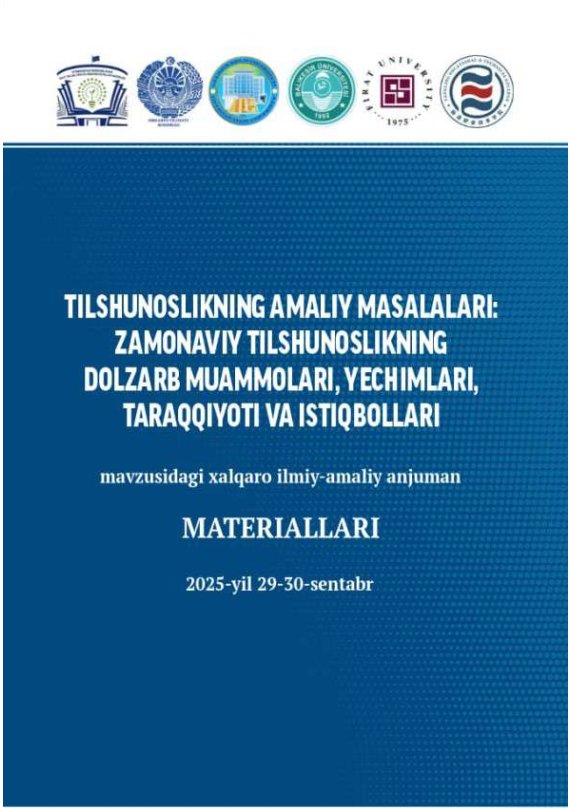ETHICAL VALUES IN ENGLISH PROVERBS: A HISTORICAL AND CULTURAL PERSPECTIVE
Keywords:
Ethical values, English proverbs, Cultural linguistics, Historical semantics, Language evolution, Moral philosophy, Corpus analysisAbstract
Proverbs encapsulate cultural wisdom in concise form, acting as moral signposts that reflect and transmit societal values across generations. Within English-speaking traditions, they have long served to legitimize ethical norms, instruct communities, and reinforce prevailing worldviews. This paper traces the historical development of ethical concepts in English proverbs, beginning with Old English expressions rooted in pagan fatalism and warrior codes, moving through the religious and scholastic influence of the Middle Ages, and culminating in the increasingly secular and humanistic messages of modern times. Attention is given to the role of shifting religious doctrines, philosophical currents, socio-economic changes, and cultural transformations in shaping the ethical tone of proverbial discourse. By drawing on classical compilations such as Heywood’s A Dialogue of Proverbs [Heywood, 1546], as well as contemporary corpora like COCA and BNC, the study identifies recurring themes—integrity, justice, perseverance, compassion, and fairness—while highlighting how their framing has adapted to new social contexts. For instance, medieval proverbs often emphasized divine retribution and moral duty under Christian doctrine, whereas present-day sayings tend to prioritize personal responsibility, civic harmony, and even digital-age ethics. The findings suggest that although the moral core of many proverbs remains recognizable, their interpretive framing has been reconfigured in accordance with evolving cultural needs. Following Mieder’s [Mieder, 2004, p.35] perspective, the paper argues that proverbs are dynamic ethical instruments: they preserve inherited wisdom while simultaneously adjusting to contemporary realities, thereby sustaining their relevance as tools of moral communication.


